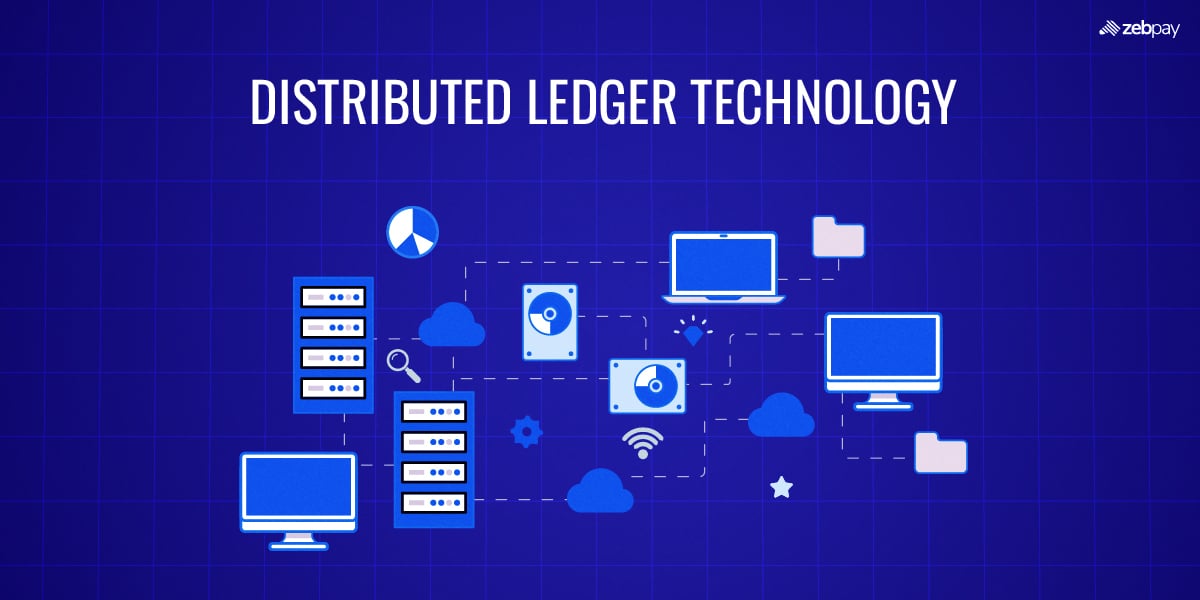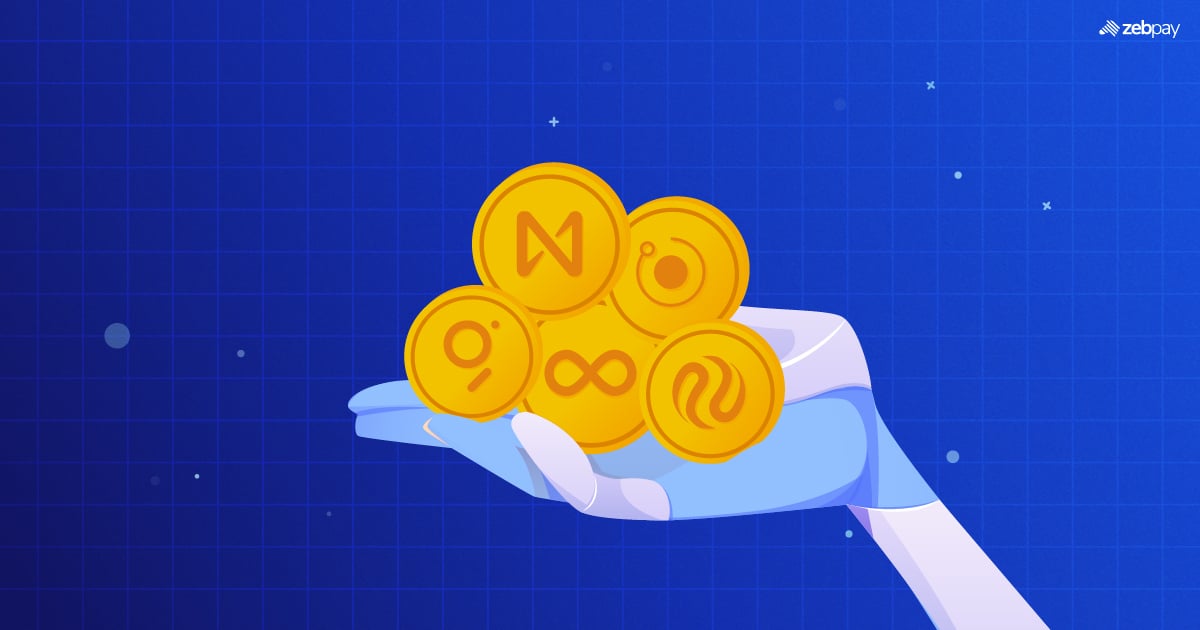Since the rapid rise of bitcoin and the blockchain industry, distributed ledgers have become the technology of choice for new applications. From finances to healthcare and even supply chain management, firms are using distributed ledgers for these varied applications. But what is distributed ledger technology? And how is it different from blockchain?
What is Distributed Ledger Technology (DLT)?
Distributed ledger technology allows you to update records, validate them and access them from anywhere. This record can be stored on a network spread across multiple different systems and physical locations. Unlike traditional databases, distributed ledgers are not stored in a single place. Therefore, there is no single point of failure in a DLT system.
DLT eliminates the need for a trusted central authority by creating a trustless system. Every individual using the ledger can see the changes transparently made by all other users. There is no need for an entity to control the ledger as it is controlled by its users.
How Do Distributed Ledgers Work?
DLT enables you to store data securely with the help of cryptography. Typically, this is done with asymmetric cryptography, where each user has two keys. One key is your public key, acting as your identity. Another is your private key which serves as a password.
Once information is stored in a distributed ledger, it can never be removed or altered. This property is known as immutability. Any additions to this database are also thus permanent and transparent.
An important element of this transparency is observability. DLT allows all users to make changes to the ledger. However, all other users on the ledger can also see who is making the changes. Since there is no possibility of making these changes completely anonymously, it increases trust in the system and eliminates the possibility of fraud.
Read about: What Is Blockchain Layers?
Types of Distributed Ledger Technology
While most DLTs use the same basic system for their operation, there can be differences in the application based on the needs of the users.
Permissionless DLT
These systems can be used by anyone to validate blocks. No authority must provide permissions for using the systems. Therefore, you can operate and maintain a system freely. This type is usually created using open source code and is publicly available.
Permissioned DLT
Unlike the permissionless system, there is an authorising party that grants you permission to validate blocks. It becomes possible to restrict access to certain parts of the system for users. For example, some higher-level users may have permission to add new blocks to the ledger, while others are allowed read-only access. Some others may even be unable to read the ledger.
Hybrid DLT
A business may want a mix of the benefits provided by permissionless and permissioned systems. Hybrid DLT enables an entity to choose what data it makes freely accessible to anyone and what to keep private. This gives you a lot of flexibility in dividing the data into public and private sections.
Benefits of Distributed Ledger Technology
Distributed ledgers are not new. They have been applied differently in organisations for years. Some firms maintain separate records for each of their branches which are only updated to a central database when required.
Modern applications of DLT allow us to circumvent this need for periodic updates. As there is no central database, all users have access to the same ledger. This ensures there is no delay in information reaching parties located far away. It also eliminates errors in the process of reconciling records as validation is based on the system rather than human input.
Given these benefits, DLT is being applied in several industries. The primary area of application is finance. Blockchain is one kind of distributed ledger technology. In recent years, it has become one of the foremost technologies in the financial sector as it allows real-time recording of transactions in a decentralised manner. This feature enables us to create systems like crypto payments which do not require any other authority to function.
Apart from finance, DLT is being applied in several other fields. The healthcare industry is exploring how using distributed ledgers makes it easier to maintain complete patient records across different branches and hospital chains. Companies like IBM and Walmart are experimenting with their applications in supply chain management. Since DLT provides real-time access to data, it can simplify shipping and warehousing for many businesses.
Finally, governments also stand to benefit from this development. It can assist in creating immutable records of government and official documents. This makes it easier to fulfil administrative and legal duties by keeping track of documents such as property deeds and intellectual property.
Final Thoughts
Given the tremendous rise in popularity that distributed ledgers have experienced, they are sure to leave a lasting impact in several industries. It simplifies the process of sharing up-to-date information publicly. It also allows all approved participants to add to this information securely and transparently. Further research and development in the field will lead to ease of business and hassle-free applications.







